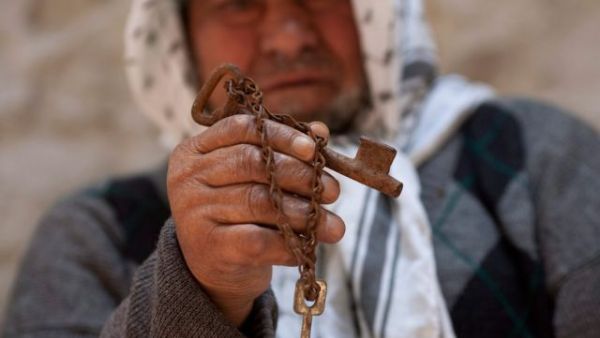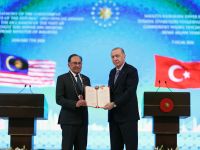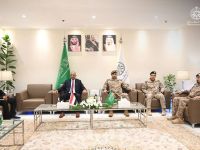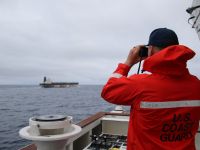Palestinians in Syria say they fear “another Iraq” as they prepare for a muted commemoration of the Nakba’s anniversary Tuesday.
President Bashar Assad’s Baath party has long used its support for Palestinian resistance against Israel as a pillar of legitimacy in Syria and the Arab world.
But developments around the Nakba and Naksa Day commemorations last year, government shelling of the camps in Remal near Lattakia in August 2011, and humanitarian sympathies mean that Palestinians have increasingly sided with the revolution.
Now, factional disputes and fear of retribution for siding with the opposition in an uprising that has seen well over 10,000 people killed by government forces have left Palestinians in the country in a precarious position, according to activists and residents.
Approximately 500,000 Palestinian refugees in Syria have enjoyed better citizenship rights and are more integrated with the host population than their counterparts in neighboring Lebanon and Jordan.
Palestinians joined protests as early as May 2011 in support of the revolution against Assad. Palestinian activist sources say the camps around Homs and Damascus have continued to actively support the revolution by providing shelter, food and clothing to Syrians fleeing government violence, as well as managing field hospitals that treat the injured.
Anger toward the regime boiled over on Nakba Day on June 5, 2011, the 44th anniversary of Israel’s occupation of Syria’s Golan Heights. The Popular Front for the Liberation of Palestine-General Command, a Palestinian faction allied with the regime, helped hundreds of Palestinians from Yarmouk camp on the outskirts of Damascus travel to the Golan Heights. Israeli gunfire and land mines killed 20 and wounded some 270 others.
The following day, at the funeral for the victims at Yarmouk camp, home to some 150,000 Palestinians and some 750,000 Syrians, angry demonstrators accused the PFLP-GC and the regime of luring demonstrators to their deaths to deflect from the political crisis at home. The PFLP-GC opened fire, killing another 11 men.
“Everything changed after that,” explains one camp resident. “We were so angry. Everybody knew what the PFLP-GC and the regime were doing. We will not let them spill our blood for their own politics.”
Since then, activists and residents in Yarmouk camp have reported an intensifying government crackdown, supported by pro-government factions and PFLP-GC “Shabbiha,” on Palestinian dissidents just like Syrian opponents. Some 70 Palestinians have been killed, according to opposition monitoring website Syrian Shuhada.
Reported shelling of the camp near the Remal area of northeastern Lattakia in August killed seven and displaced thousands of refugees, adding to complaints, while the continued violence across the country has forced hundreds of thousands of Syrians to seek refuge in camps around Homs and Damascus in particular.
During the monthlong campaign against the Baba Amr neighborhood in Homs last March, activists say hundreds of families sought shelter and medical aid in the neighboring camp. Residents say dozens of Syrian and Palestinian families from the Homs camp are now living in illegal housing in and around Yarmouk.
One Palestinian journalist and activist in Syria told The Daily Star, “When I saw those families who had to leave with nothing, just the clothes on their backs, I realized what my grandparents felt like leaving Palestine in 1948 ... I felt like I am equally Palestinian and Syrian.”
An activist and journalist using the pseudonym Abu Eyad in the Yarmouk camp estimates that “90 percent of the camp population identify with the revolution ... Even they are not going to protests, they support it privately,” adding that near weekly protests in Yarmouk chant for the fall of the regime: “Wahed, wahed, wahed, Filistini w Suri wahed” (“One, one, one, Palestinians and Syrians are one”).
Kamal Hussein, an activist and journalist with Al-Hayat newspaper, agrees, adding that the situation remains complicated for Palestinians.
“Syrian Palestinians live as Syrians, and we think of our situation as the same as Syrians,” he says. “But it’s much harder for Palestinians to leave. We have memories of Iraq and Jordan.
“If you stand with the revolution as a Palestinian, you are against the regime, and vice versa,” he adds.
“We worry that it will be another situation like the Palestinians in Al-Tanf,” he says, referring to the “no man’s land” camp in Syria where some 1,000 Palestinian refugees fled following persecution in Iraq in 2006, only to be denied entry to other neighboring countries.
Complicating matters further was the departure of Hamas leader Khaled Meshaal and other leaders from Syria after rumors the faction had come under pressure from Sunni allies opposed to the regime.
Hussein says there is evidence that Hamas and Fatah supporters have been targeted as a result. “Members of Hamas and Fatah feel Meshaal abandoned them,” he adds.
Palestinian figures organizing Tuesday’s Nakba commemoration say that they have actively discouraged protests in Syria this year and that there will be no march to the border. “We have told them: ‘Do not give your blood for them’ ... I think Nakba Day will be different this year,” says Abu Eyad.
Another organizer in Lebanon says applications for demonstrations inside the camp have been denied. “The situation is so tense, I don’t think there will be anything unless it is spontaneous.”
Um Selim, a housewife, says she is tired of being used for other people’s interests. “What is going in Syria is bigger than Hamas or Fatah; there is a state of chaos here.
“We are accused by the opposition and the regime of supporting the other side, and both parties are threatening retribution when the situation stabilizes to their own advantage.” –
By By Lauren Williams
Additional reporting by a special correspondent in Damascus








